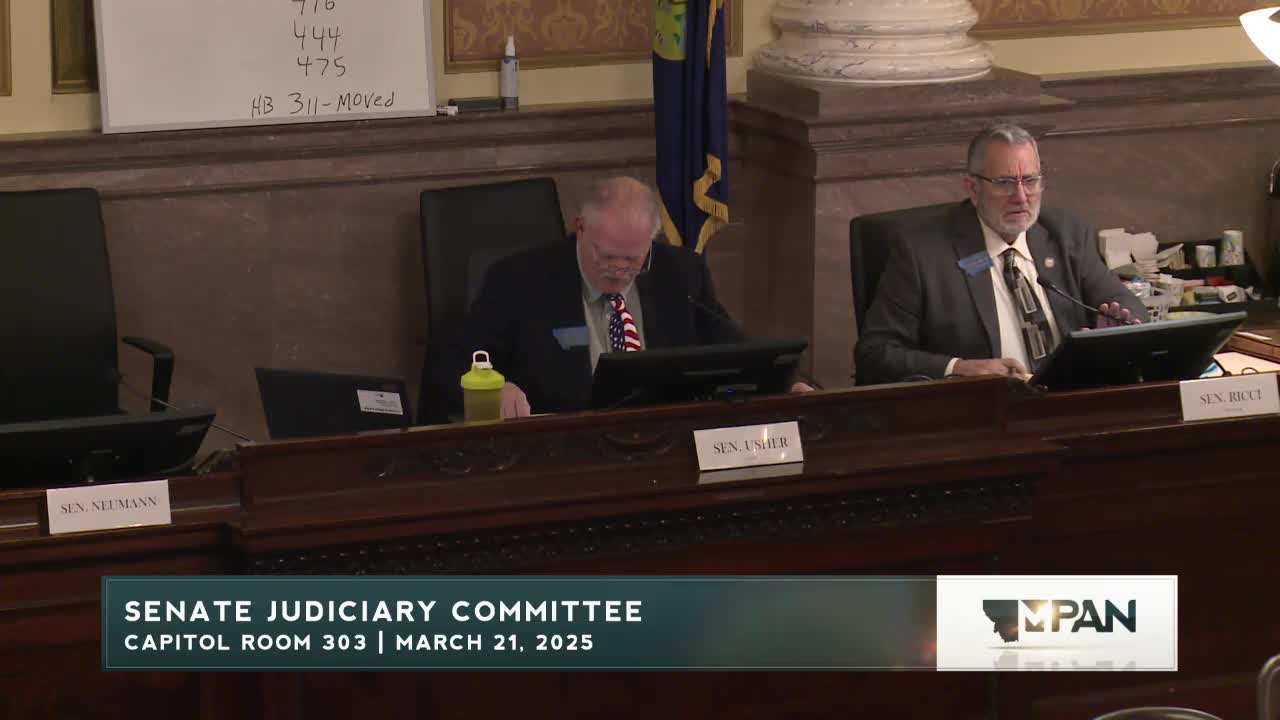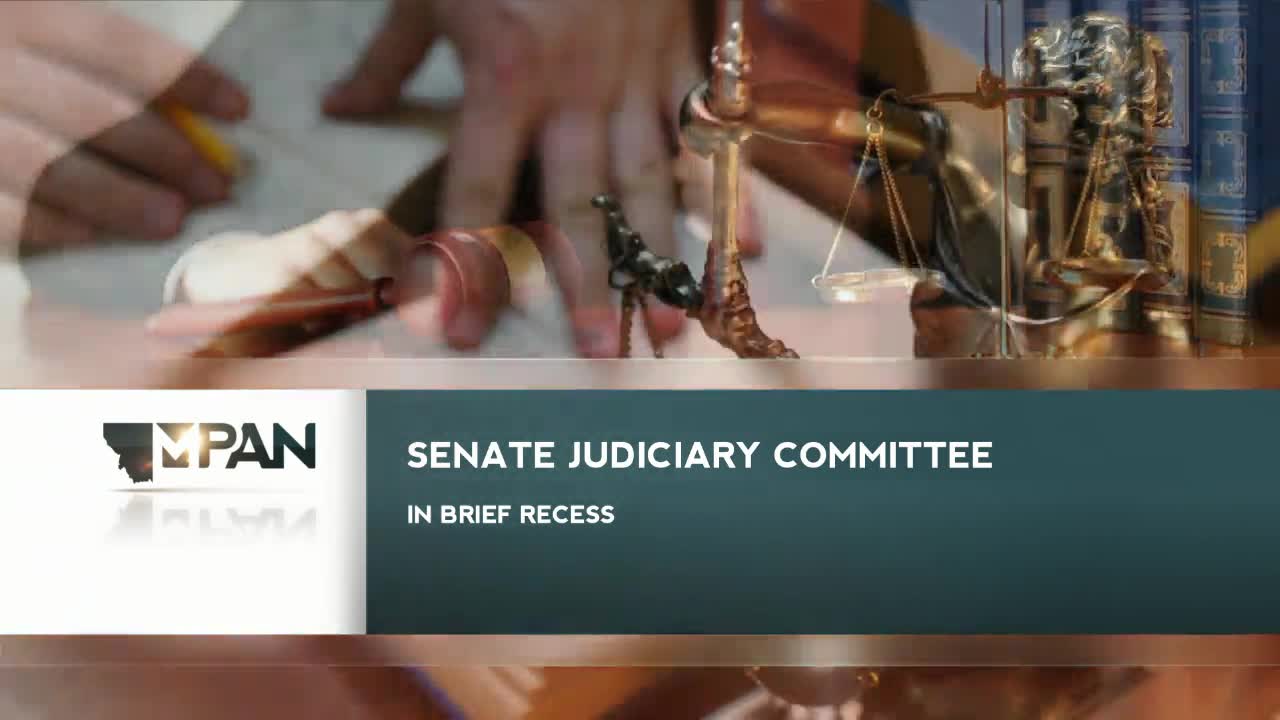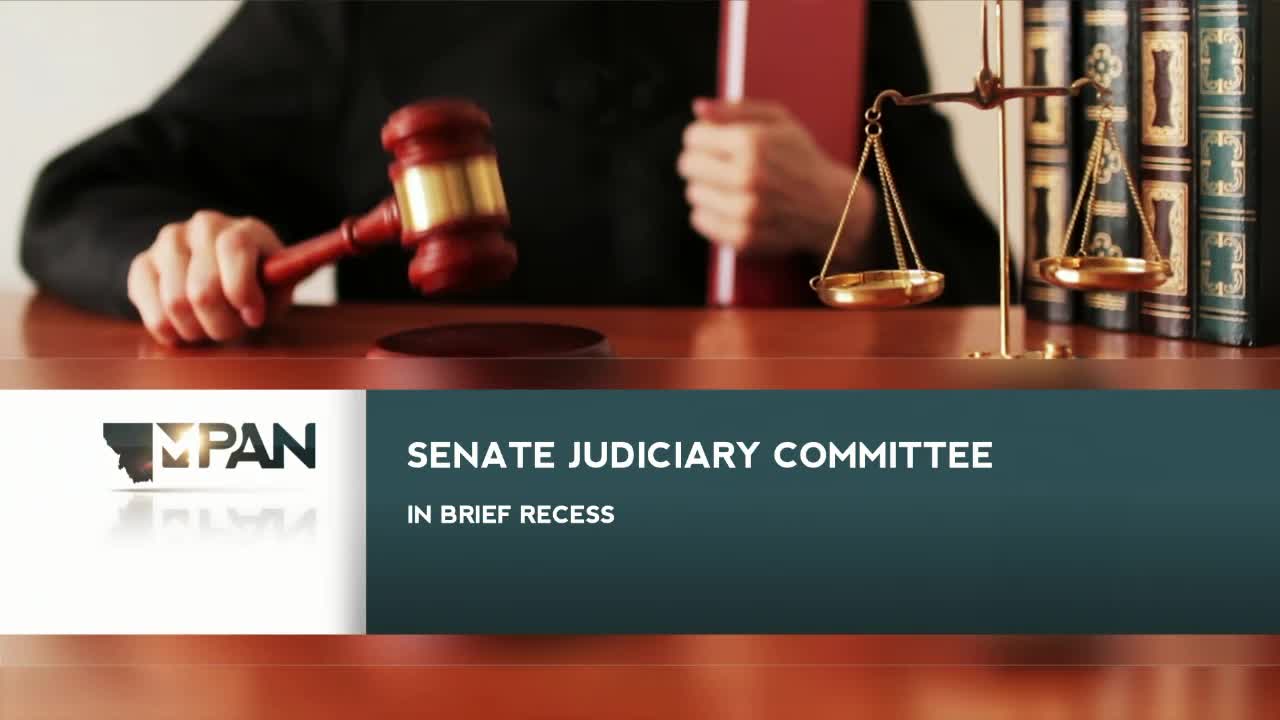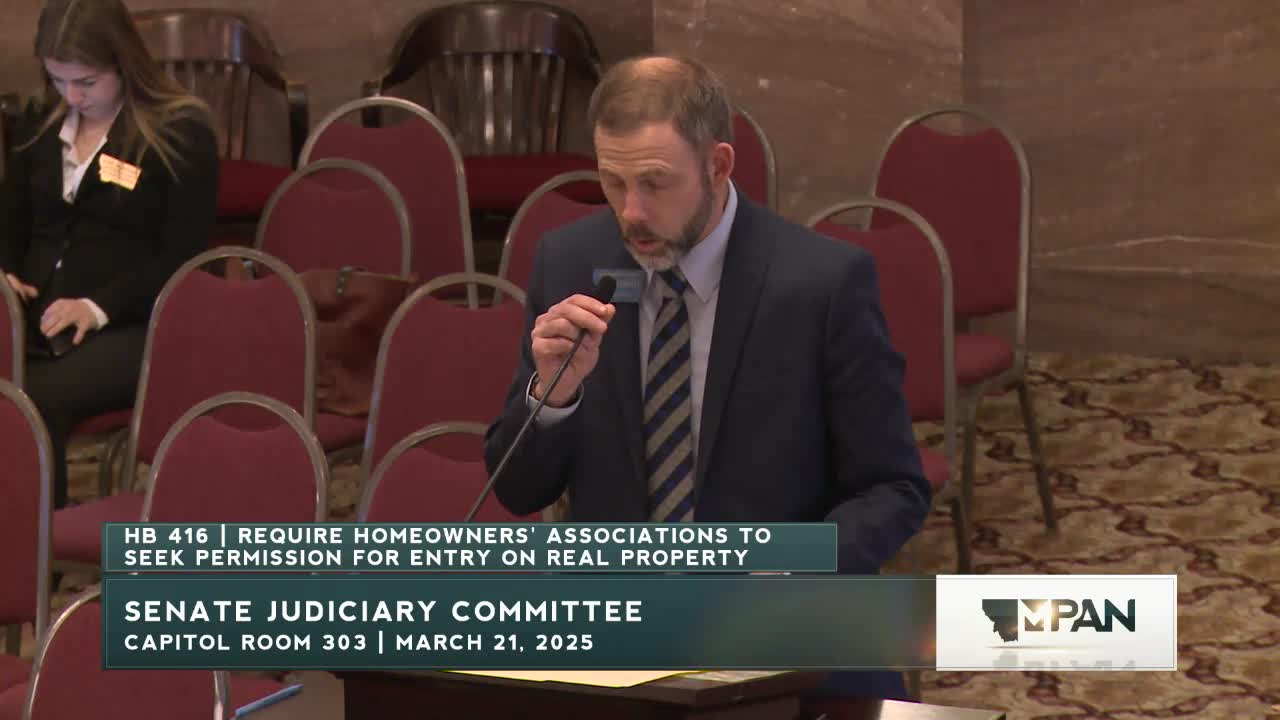Article not found
This article is no longer available. But don't worry—we've gathered other articles that discuss the same topic.

Senate Judiciary hears hours-long debate over House Bill 676 on water rights, land sales and ending water court

Committee hears bipartisan support to restrict shackling of pregnant inmates; executive action stalls and bill is tabled

Committee hears measure to let landlords return security deposits electronically

